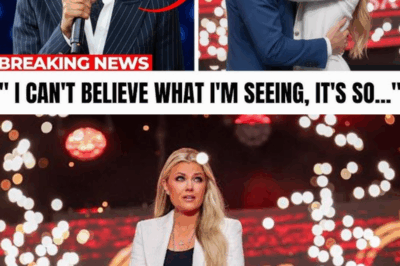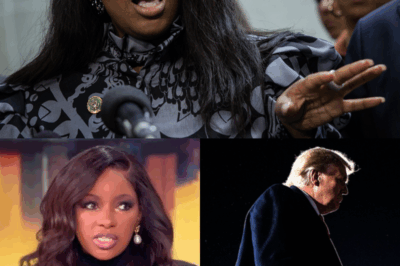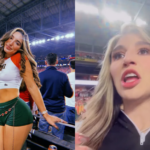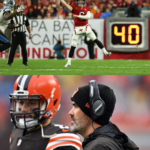Elon Musk, the billionaire entrepreneur known for his audacious promises and ambitious projects, is facing mounting legal and reputational challenges over claims about Tesla’s self-driving capabilities.
A federal judge in San Francisco has just approved a class-action lawsuit against Tesla, allowing a group of Tesla owners to sue the company for allegedly misleading them about the autonomous driving features of its vehicles.
This marks a significant blow to Musk’s efforts to position Tesla as a leader in artificial intelligence and autonomous driving, especially amid a noticeable slowdown in global electric vehicle (EV) sales.
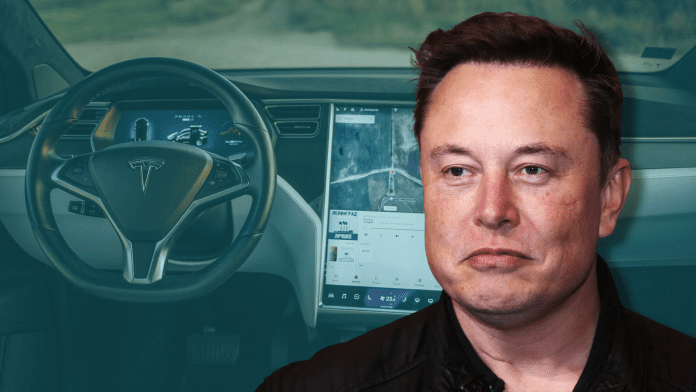
The Origins of Musk’s Self-Driving Claims
The controversy dates back to 2016, when Musk boldly declared that Tesla’s electric vehicles were equipped with all the necessary hardware to achieve full autonomy.
He claimed that the cars would eventually reach “Level 5 autonomy,” a designation indicating the ability to drive in any condition without human intervention.
Musk’s statement, “The full autonomy hardware suite will be standard on all vehicles Tesla makes from here on out,” captured headlines worldwide and fueled excitement among consumers and investors alike.
At the heart of Musk’s promise was an array of advanced technologies, including digital cameras, ultrasonic sensors, and radar systems.
Tesla marketed these features as a revolutionary step toward fully self-driving cars, with the understanding that the software would be refined over time to unlock their full potential.
However, nearly a decade later, Tesla’s vehicles still fall far short of Level 5 autonomy.
While the company’s “Autopilot” and “Full Self-Driving” (FSD) modes offer advanced driver assistance features, they require constant human supervision and are far from the fully autonomous systems Musk promised.
Critics argue that Musk’s claims were exaggerated from the start and have misled consumers into believing they were purchasing vehicles capable of true self-driving functionality.
The Legal Fallout
The class-action lawsuit approved this week is the latest in a series of legal challenges facing Tesla over its self-driving claims.
The lawsuit alleges that Musk and Tesla engaged in false advertising by overstating the capabilities of their autonomous driving systems, causing financial harm to consumers who paid a premium for features that have not been delivered.
The case follows a separate federal lawsuit in Miami earlier this month, where a jury found Tesla partially responsible for a fatal crash in 2019 involving its Autopilot feature.
The jury ordered Tesla to pay $243 million in damages, highlighting the risks associated with the company’s autonomous driving technology.
Tesla is also under scrutiny in California, its largest U.S. market, where the state’s Department of Motor Vehicles (DMV) has accused the company of misleading consumers about the self-driving capabilities of its vehicles.
If Tesla is found guilty, it could temporarily lose its ability to sell cars in the state—a potentially devastating blow for the company.
The Expert Opinions
Industry experts have long been skeptical of Musk’s self-driving claims, and recent legal developments have only reinforced their concerns.
Phil Coupeman, an autonomous vehicle (AV) researcher and professor emeritus at Carnegie Mellon University, described the situation as “a long time coming.”
He noted that Musk’s promises of full autonomy were unrealistic from the start and that the current legal challenges are the inevitable result of years of exaggerated claims.
Bryant Walker Smith, an AV researcher and professor at the University of South Carolina, echoed these sentiments.
Smith, who served as an expert witness for the California DMV in its case against Tesla, pointed out the stark contrast between Musk’s rhetoric and the reality of Tesla’s technology.
“Right now, there are real robo taxis carrying real people on real roads.
None of them is a Tesla,” Smith said, referring to competitors like Alphabet’s Waymo and China’s Baidu, which have made significant strides in autonomous driving.
Smith’s recent study comparing the performance of robo taxis operated by Waymo in the U.S. to those of Baidu in China further highlights Tesla’s shortcomings.
While other companies have either delivered on their promises or adjusted their expectations, Tesla continues to market its self-driving features as being on the verge of revolutionary breakthroughs—despite little evidence to support such claims.
The Impact on Tesla’s Reputation and Sales
For years, Musk’s penchant for bold claims and ambitious timelines has been a defining feature of his brand.
From hyperloops to solar roofs to Dogecoin-fueled federal budget savings, Musk has built a reputation as a visionary willing to take risks and push boundaries.
However, his habit of overpromising is increasingly becoming a liability for Tesla.
The company’s global EV sales dropped by 13% in the first half of 2025, raising concerns about its ability to maintain its market dominance.
Tesla’s competitors, including Waymo and Baidu, have solidified their positions as leaders in autonomous driving, leaving Tesla struggling to catch up.
Waymo, for instance, operates commercial robo taxis in five major U.S. cities and is testing in ten more, while Tesla’s robo taxi pilot program in Austin still relies on human safety drivers.
Musk’s continued rhetoric about Tesla’s self-driving capabilities is also undermining the company’s credibility.
While he insists that Tesla will eventually overtake Waymo due to its cheaper system, industry experts argue that Tesla’s technology is far from being competitive in the autonomous driving space.
The Broader Implications
The legal challenges surrounding Tesla’s self-driving claims have far-reaching implications for the autonomous vehicle industry.
They highlight the importance of transparency and accountability in marketing advanced technologies, especially those that directly impact consumer safety.
For Tesla, the lawsuits represent more than just financial risks—they threaten to erode trust in the brand and its leadership.
Musk’s repeated promises of imminent breakthroughs in self-driving technology have created high expectations among consumers, investors, and regulators.
As those promises remain unfulfilled, the company faces growing scrutiny and skepticism.
The controversy also underscores the competitive landscape of the autonomous driving industry.
Companies like Waymo and Baidu are setting the standard for what is possible in self-driving technology, leaving Tesla to grapple with the consequences of its unfulfilled promises.
What’s Next for Tesla and Musk?
As the class-action lawsuit moves forward, Tesla and Musk will likely face increased pressure to address the gaps between their marketing claims and the reality of their technology.
The outcome of the lawsuit could set a precedent for how companies are held accountable for misleading advertising in the autonomous vehicle space.
For Musk, the stakes are particularly high. His vision for Tesla as a leader in artificial intelligence and autonomous driving is central to the company’s future.
If Tesla fails to deliver on its promises, it could lose its competitive edge and face long-term reputational damage.
In the meantime, consumers, regulators, and industry experts will be watching closely as the legal battles unfold.
The controversy serves as a reminder that in the race for innovation, bold claims must be backed by tangible results—or risk the consequences of falling short.
News
💔 “SHE DIDN’T PLAN TO BE A HERO — SHE JUST COULDN’T WALK AWAY.” 🌧️ When Rachel Maddow landed in Jamaica to cover the aftermath of Hurricane Melissa, she expected devastation. What she didn’t expect… was her. A little girl, barefoot in the wreckage, clutching a soaked teddy bear and whispering one word: “Mama.” Reporters looked away. Cameras kept rolling. But Maddow — silent, trembling — stepped forward. That night, she stayed. Days later, she signed the papers that changed both their lives forever. Now, as the world reacts to her unexpected act of love, one haunting question remains: Was this journalism… or destiny?|KF
1. The Storm That Took Everything The storm had no mercy. Hurricane Melissa tore through Jamaica with winds that howled…
😱 “NO CAMERAS. NO PRESS. JUST ACTION.” 💥 When Hurricane Melissa left Jamaica in ruins, everyone expected statements — not silence. But that night, Rep. Jasmine Crockett made a call no one knew about. Hours later, a private shipment — blankets, medicine, and water filters worth $500,000 — quietly left U.S. soil. No press release. No credit. Just a note inside the first box that made rescuers burst into tears. Now, the world wants to know: what did she write?|KF
When Hurricane Melissa finally loosened its grip on Jamaica, what remained was not silence but the faint hum of survival…
💥 “THE TAPES WERE NEVER MEANT TO LEAVE THE BUILDING.” 😳 A Turning Point USA insider has come forward — and what they just leaked about Erika Kirk and the Chief of Staff is sending shockwaves through conservative media. Behind closed doors, secret recordings. Late-night meetings. Deleted emails that someone thought were gone forever. And now, the story is unraveling — faster than anyone can contain it. The insider’s confession doesn’t just expose one scandal… it hints at a network of cover-ups stretching far beyond TPUSA. 👀 Either way, the receipts are coming — and they could change everything. 👉 Full leaked details in the comments (CMT) before they disappear… 🔥👇👇|KF
Late last night, an anonymous insider from Turning Point USA (TPUSA) dropped a bombshell that has sent shockwaves through conservative…
“LIVE MELTDOWN ON NATIONAL TV” — WHOOPI GOLDBERG’S EXPLOSIVE MOMENT LEAVES ‘THE VIEW’ IN CHAOS 😱💥 It started like any other morning at The View. Laughter. Headlines. Controlled chaos. Then — a single note changed everything. As producers slipped Whoopi Goldberg a message mid-segment, cameras caught something no one was supposed to see. With a glare sharper than a knife, she snatched the paper, ripped it to pieces, and tossed it aside — live, unedited, and on national television. The studio froze. Her co-hosts went silent. Viewers at home could feel it — that thick, electric tension pulsing through the screen|KF
Inside Whoopi Goldberg’s Live Meltdown — and the Crisis Shaking Disney’s Daytime Empire It started with a folded piece of…
💥 “NO CAMERAS. NO PRESS. JUST THREE NAMES THE WORLD THOUGHT THEY KNEW.” 🌪️ When the Category-5 monster Hurricane Melissa tore through Jamaica, help was nowhere in sight. Then — without a single announcement — a private jet touched down at dawn. Inside: Rachel Maddow. Stephen Colbert. Joy Reid. No sponsors. No cameras. No entourage. They brought 5 tons of food, medicine, water filters, and $1.5 million in aid, all paid from their own pockets. Locals said they worked through the night — lifting boxes, feeding children, treating wounds — not a single word about fame or press. And when a volunteer asked why they came, Joy Reid quietly answered: “Because the news doesn’t need to cover this — humanity does.” By morning, they were gone. No selfies. No headlines. Just whispers spreading across the island — “Were those really them?” Nobody knows who leaked the flight manifest. But one thing’s certain: this wasn’t charity. This was rebellion — against the silence of comfort. 🕯🌎 👇 Full uncovered story before it disappears…|KF
No cameras. No sponsors. Just three journalists who decided to act, not speak. When Hurricane Melissa struck Jamaica — the…
End of content
No more pages to load




